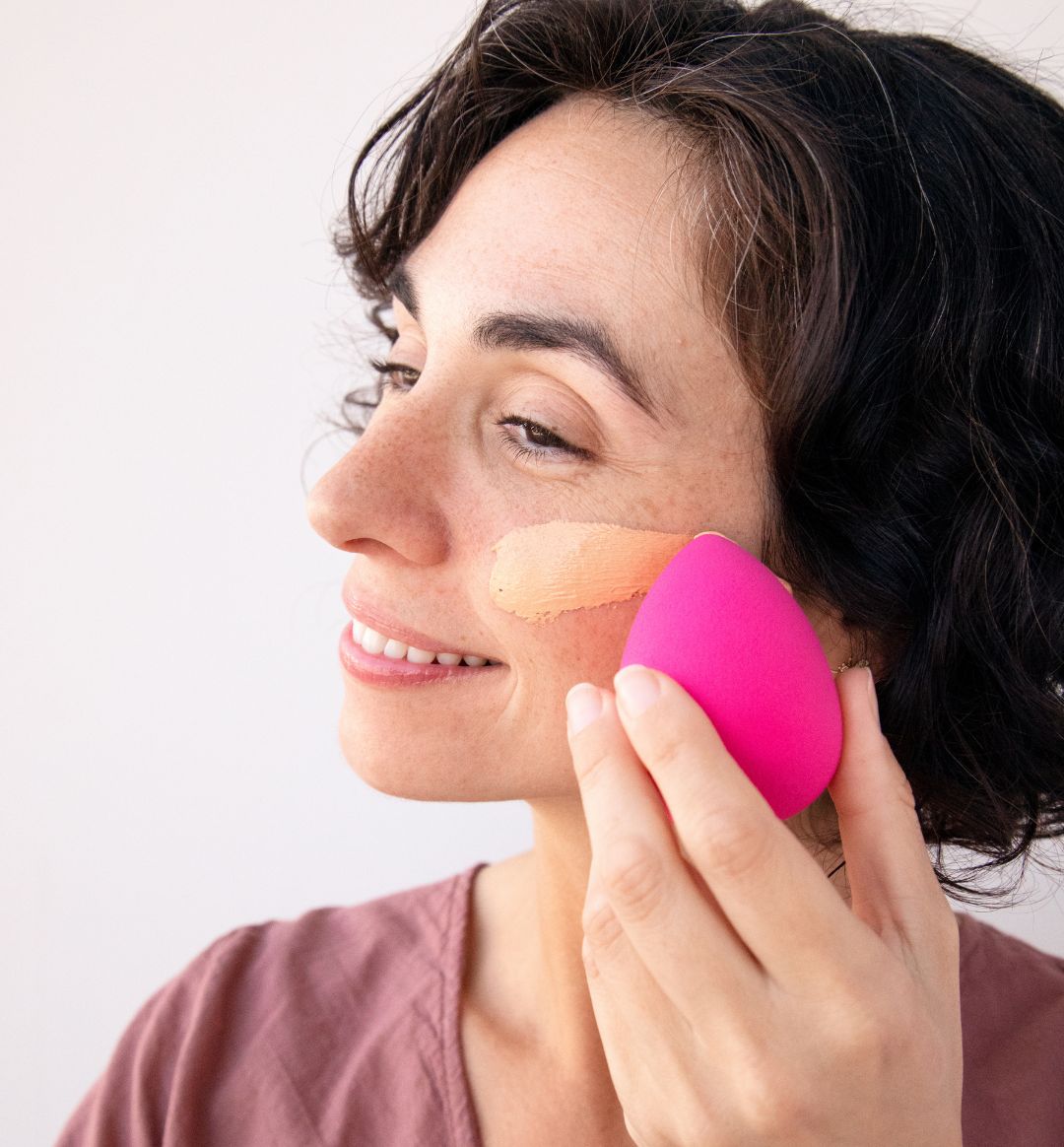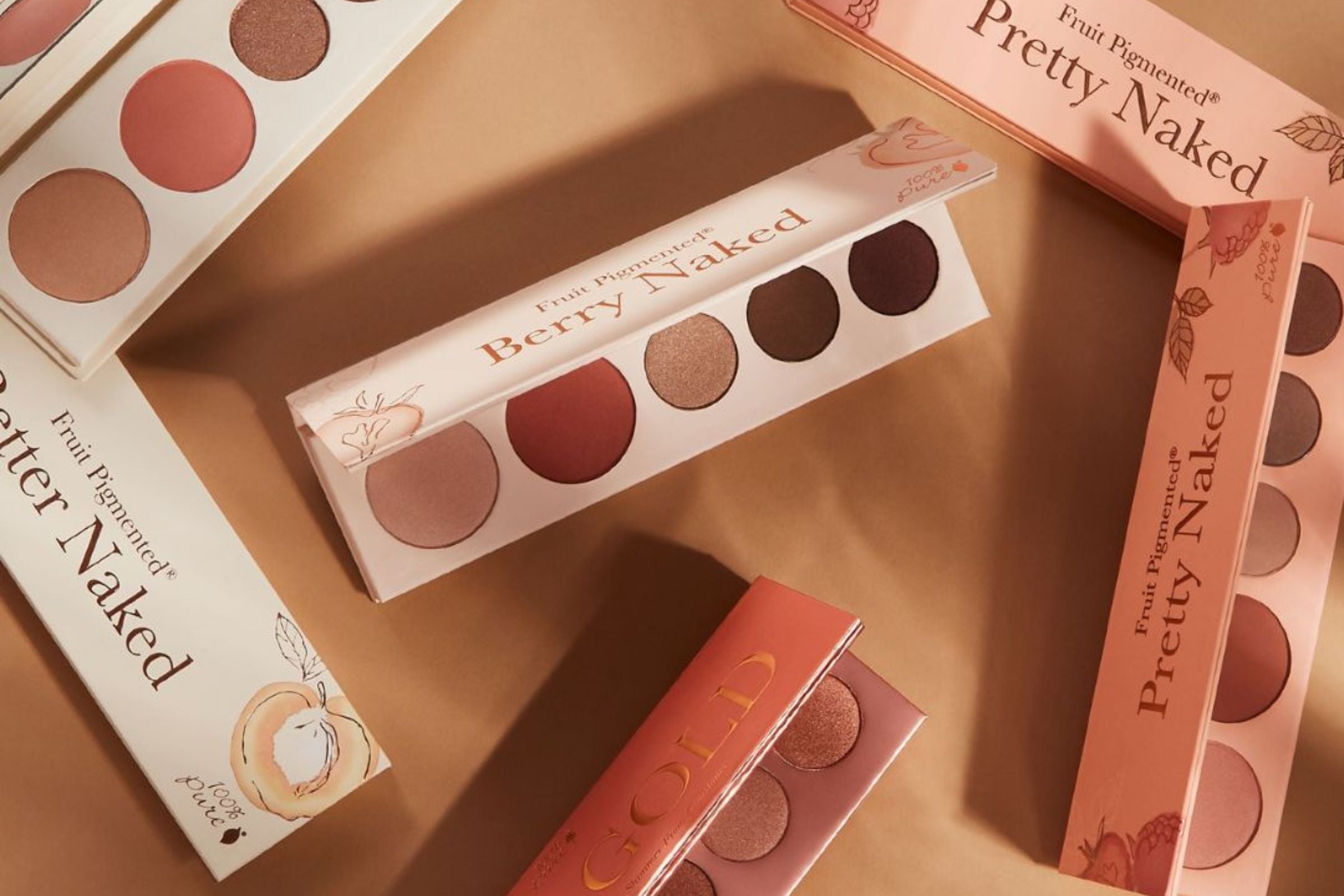Transitioning to Natural Makeup: A Step-by-Step Guide for Every Woman
Discover the Joy of Clean Beauty: Your Journey to a Healthier, Radiant You Begins Here
Posted on August 10, 2023 Written by: 100% PURE®
In today's beauty-conscious world, the concept of natural makeup has emerged as a compelling alternative to conventional cosmetic products. As people become increasingly aware of the potential risks associated with synthetic and chemically-laden makeup, a growing concern has arisen regarding the impact of these products on our skin and overall well-being. From the potential for harmful ingredients to trigger allergic reactions to broader environmental and ethical considerations, the need for a safer and more sustainable approach to beauty has never been more pronounced.
Conventional makeup, though widely used for enhancing beauty, often harbors a hidden array of potentially harmful ingredients that can pose risks to both skin health and overall wellness. These products frequently contain synthetic chemicals such as parabens, phthalates, and formaldehyde-releasing agents, which serve various purposes like preserving shelf life and achieving vibrant colors.
However, these substances have raised concerns due to their potential to disrupt hormones, cause skin irritation, and contribute to allergic reactions. Prolonged exposure to these ingredients can lead to skin sensitivities, exacerbate existing conditions, and even affect systemic health over time. The quest for flawless beauty should not come at the expense of our well-being, making it crucial to consider the adverse effects that conventional makeup ingredients can have on our skin and our broader health landscape.

Natural makeup is a beauty regimen centered around using products derived from plant-based and naturally occurring ingredients, avoiding synthetic chemicals and harsh additives commonly found in conventional cosmetics. By excluding parabens, sulfates, artificial fragrances, and other potentially harmful substances, natural makeup aims to provide a healthier and more environmentally conscious alternative.
The benefits of natural makeup extend beyond aesthetics. Firstly, its reliance on gentle, non-irritating ingredients can lead to improved skin health, reducing the likelihood of allergic reactions, redness, and breakouts. The absence of harsh chemicals minimizes the risk of skin sensitivities and supports individuals with sensitive or problematic skin.
Furthermore, the potential health advantages of natural makeup are significant. Its botanical elements often offer antioxidant, anti-inflammatory, and nourishing properties, which can contribute to healthier skin in the long run. For those seeking a beauty routine that supports both personal well-being and the planet, embracing natural makeup is a compelling choice.
Transitioning to natural makeup offers a promising solution that aligns both with our desire for a healthier appearance and a more responsible lifestyle. In this exploration, we delve into the importance of natural makeup, address the pitfalls of conventional products, and shed light on the benefits and transformative potential of embracing a more natural and conscientious beauty regimen.
Step 1: Educate Yourself about Ingredients
Start your journey by becoming familiar with ingredients to avoid and embrace natural makeup. Avoid parabens, sulfates, synthetic fragrances, and phthalates – common in conventional makeup. Opt for natural pigments, plant-based oils (like jojoba and coconut), and mineral ingredients like zinc oxide. Look for products with recognizable, botanical names and consider certifications from reputable organizations.
Step 2: Prioritize Your Makeup Products
Begin transitioning by assessing your daily makeup routine. Identify frequently used products like foundation, lipstick, and moisturizers. Start replacing these essentials first. This gradual approach ensures a smooth shift and allows your skin to adjust to the new products over time.
Step 3: Research Natural Makeup Brands
Explore trusted natural makeup brands that prioritize quality and authenticity. Look for those committed to using non-toxic, eco-friendly ingredients. A top choice is 100% PURE, renowned for its dedication to purity and effectiveness. Their products are free from harmful chemicals, and they source their ingredients sustainably, making them a reliable option for your natural makeup transition.
Step 4: Test and Experiment
When trying new products, conduct patch tests on a small area of your skin to check for allergic reactions. Start with travel-sized options to experiment without committing fully. Observe how your skin responds and adjust your choices accordingly. Gradually integrate new products into your routine as you build confidence in their effectiveness and compatibility with your skin type.
Transitioning to natural makeup is a rewarding journey towards healthier, more sustainable beauty choices. By arming yourself with ingredient knowledge, focusing on essential swaps, researching trusted brands like 100% PURE, and testing products thoughtfully, you'll pave the way for a radiant and conscious beauty regimen that supports your well-being and the planet.
Applying natural makeup differs in technique and approach compared to conventional cosmetics. Natural makeup aims to enhance your features subtly, focusing on a more radiant, skin-focused appearance. Use lighter layers to allow your skin's natural texture to shine through, emphasizing a dewy and fresh finish. Techniques like blending with fingertips and using minimal contouring contribute to a more natural, effortless look.
Newsletter Subscribe
for more blog updates and exclusive discounts

Fruit Pigmented® Tinted Moisturizer: Apply a small amount to your face using your fingertips, blending outward for a sheer, even base.
Fruit Pigmented® Eye Shadows: Use neutral shades from Rose Gold or Berry Naked palette to define your eyelids, blending softly.
Creamy Long Last Liner: Apply a thin line of brown eyeliner along your upper lash line for subtle definition.
Fruit Pigmented® Blush: Gently pat our award-winning "Pinkie" blush onto your cheeks for a natural flush.
Cocoa Butter Matte Lipstick: Swipe on smoothly gliding butter matte lipstick for a hydrating and pigmented lip tint.
Finish your look with a light mist of hydrating setting spray to set your makeup and give your skin a dewy finish. Embrace the beauty of natural cosmetics, enhancing your features while letting your skin's inherent radiance shine through.
1. Blend with Finesse: When applying natural makeup, focus on seamless blending. Use soft, circular motions with brushes or your fingertips to merge products into your skin, achieving a harmonious and natural finish.
2. Less is More: Opt for a light hand when applying products. Start with small amounts and build up coverage gradually. This approach maintains the skin's texture and allows your natural beauty to shine through.
3. Embrace Multi-Use Products: Simplify your routine by using versatile products like cream blushes that can also double as lip tints. This not only saves time and space in your makeup bag but also contributes to a more unified and natural look.
Q: Is natural makeup as effective as conventional makeup?
Natural makeup offers a lighter and more subtle look compared to conventional makeup. It focuses on using fewer synthetic ingredients, promoting a more natural appearance while lacking the same intensity and staying power of conventional products.
Q: Can natural makeup have a long shelf life?
Natural makeup often contains fewer preservatives, which may result in a shorter shelf life compared to conventional products. It's advisable to store and handle natural makeup properly, keep track of expiration dates, and note any changes in texture, smell, or color to ensure its safety and effectiveness.
Q: Can natural makeup provide enough coverage for skin imperfections?
Natural makeup tends to offer lighter coverage compared to conventional makeup. While it can help even out skin tone and provide a natural finish, it might not fully conceal prominent imperfections. For more coverage, consider layering or using specific natural makeup products designed for better coverage.
Q: How can I tell if a makeup product is truly natural?
To determine if a makeup product is genuinely natural, check the ingredient list for recognizable plant-based and naturally derived components. Look for certifications from reputable organizations, like COSMOS or USDA Organic. Avoid products with extensive chemical names. Research the brand's ethos and read reviews to gauge their commitment to natural ingredients.
Embracing natural makeup isn't just a shift in beauty routine; it's a conscious choice that aligns your cosmetic regimen with a healthier, more sustainable lifestyle. By educating yourself about ingredients, adopting mindful application techniques, and selecting trustworthy brands like 100% PURE, you're not only enhancing your appearance but also contributing to a positive impact on your skin's well-being and the environment. With each brushstroke and dab, you're celebrating the beauty of authenticity and inviting a radiant, natural glow that reflects your inner vitality.
- Tags: August-2023, make up, Makeup
We carefully hand-select products based on strict purity standards, and only recommend products we feel meet this criteria. 100% PURE™ may earn a small commission for products purchased through affiliate links.
The information in this article is for educational use, and not intended to substitute professional medical advice, diagnosis, or treatment and should not be used as such.
Sign up to our email newsletter for more blog updates and exclusive discounts.
< Older Post | Newer Post >


























